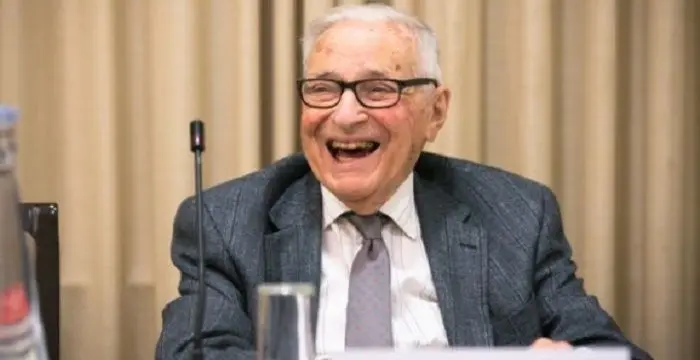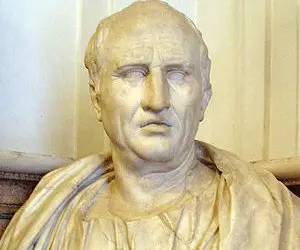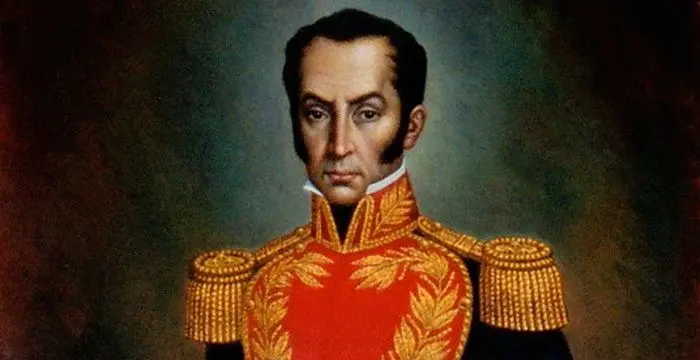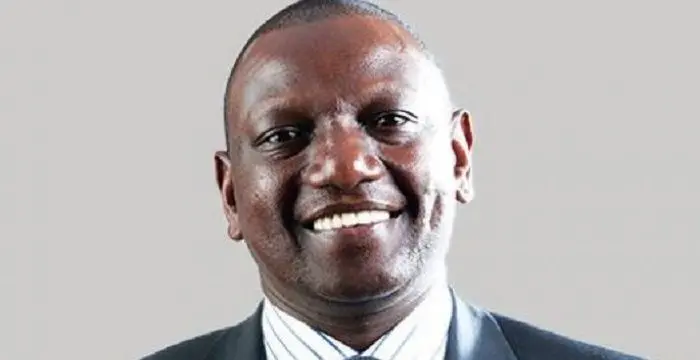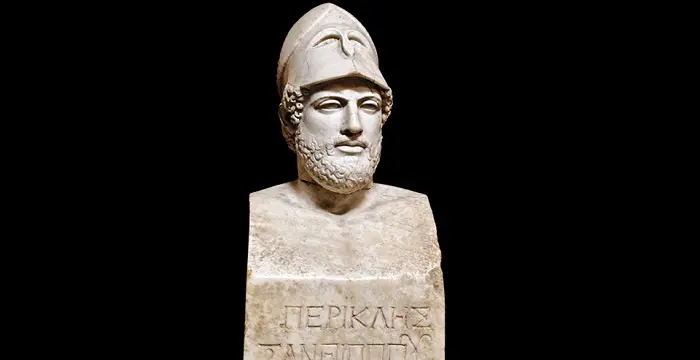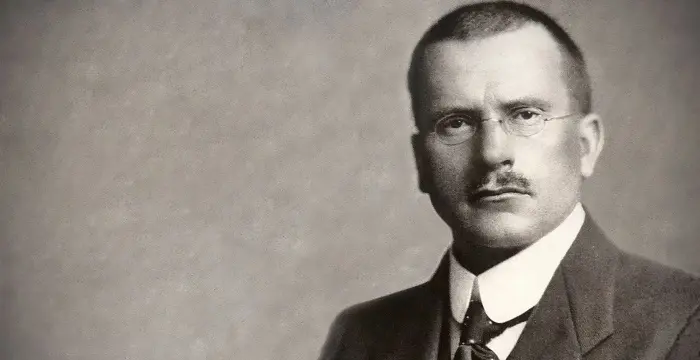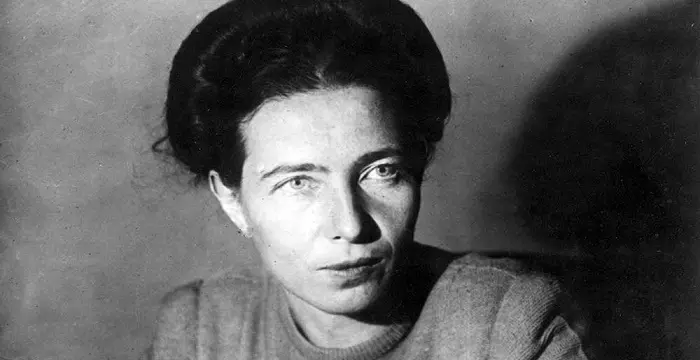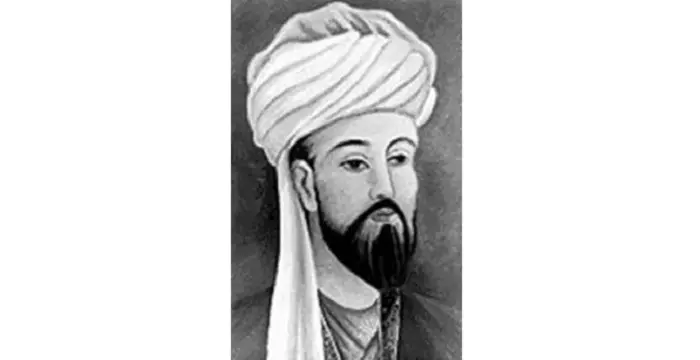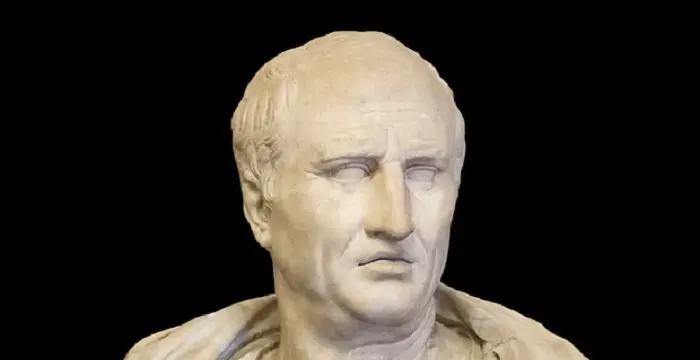
Cicero - Political Theorist, Career and Childhood
Cicero's Personal Details
Cicero was a Roman philosopher, politician, lawyer, and orator
| Information | Detail |
|---|---|
| Nationality | Italian, Ancient Roman |
| Famous | Republicans, Philosophers, Lawyers & Judges, Political Leaders, ENFJ, Political Theorist |
| Ideologies | Republicans |
| Spouses | Publilia Brutus, Terentia |
| Siblings | Quintus Tullius Cicero |
| Known as | Marcus Tullius Cicero |
| Childrens | Marcus, Tullia |
| Cause of death |
|
| Birth Place | Arpinum, Roman Republic, modern Arpino, Lazio, Italy |
| Born Country | Italy |
| Gender | Male |
| Father | Marcus Tullius Cicero |
| Mother | Helvia |
| Sun Sign | Capricorn |
| Born in | Arpinum, Roman Republic, modern Arpino, Lazio, Italy |
| Famous as | Philosopher, Political Theorist |
| Died at Age | 63 |
// Famous Political Theorist
Kenneth Arrow
Kenneth Arrow is an American economist whose works have earned him the Nobel Memorial Prize in Economic Sciences in 1972. This biography of Kenneth Arrow provides detailed information about his childhood, life, career, achievements & timeline.
Cicero's photo
Who is Cicero?
Marcus Cicero was a Roman philosopher, politician, lawyer, orator, political theorist, consul and constitutionalist. A strong believer in the Roman Republic, he served for a short time in the army and then began his career as a lawyer. He quickly became famous for taking risky cases and winning them. He also incurred the wrath of the Roman dictator Sulla. When Cicero was quaestor for Sicily, he successfully prosecuted a case against its governor, the powerful Gaius Verres. It was during this case that he became known as the greatest orator in all of Rome. He was elected to consul, the highest position in the Roman government. During his time as consul, he blocked a threat to overthrow the Republic. He was given the title, Pater Patriae, meaning "Father of the Country", by the Senate for his brave efforts. He watched warily the rise of Julius Caesar and his ambition and following his assassination ne became an enemy of Mark Anthony in the ensuing power struggle that of Antony and eventually lost his life . His extant works include 58 orations, around 900 letters, poems, philosophical and political treatises, and books of rhetoric. He is remembered as the greatest Roman orator and the innovator of what became known as Ciceronian rhetoric, which remained the foremost rhetorical model for many centuries.
// Famous Republicans
Simon Bolivar
Simón Bolívar was a Venezuelan military leader who was instrumental in independence of several Latin American countries from the Spanish rule. This biography profiles his childhood, life, achievements and timeline.
Nizar Qabbani
Nizar Qabbani was a poet, and is one among the most honoured men in the Arab Literary world. This biography provides detailed information about his childhood, career, profile and timeline.
William Ruto
William Ruto is a politician who hails from Kenya and is the first Deputy President of the Republic of Kenya. This biography provides detailed information about his childhood, Profile, career and timeline
Childhood & Early Life
Cicero was born in Arpinum, a hill town 100 km southeast of Rome. His father belonged to the equestrian order and possessed good connections in Rome. Little is known about his mother, Helvia.
According to Greek historian Plutarch, his fame as an extremely talented student enabled him to study Roman law under Quintus Mucius Scaevola while Servius Sulpicius Rufus and Titus Pomponius were his fellow-students.
Later Life
In 90 BC–88 BC, he served the Roman generals, Gnaeus Pompeius Strabo and Lucius Cornelius Sulla, as they campaigned in the Social War, though he had no taste for military life.
In his first major case in 80 BC, he successfully defended Sextus Roscius who was charged of patricide, a courageous move because patricide was a serious crime and the people whom Cicero accused of the murder were dictator Sulla’s favorites.
In 79 BC, he left for Greece, Asia Minor and Rhodes, perhaps fearing Sulla’s wrath. In Athens he met Atticus, who had become its honorary citizen and he introduced him to some important Athenians.
He wanted to learn a less physically exhausting style of speech and sought the help of the rhetorician Apollonius Molon of Rhodes who instructed Cicero in a less intense form of oratory.
Cicero served as quaestor in western Sicily in 75 BC and demonstrated honesty and integrity in his dealings with the inhabitants. He successfully prosecuted Gaius Verres, a corrupt governor of Sicily.
‘In Verrem’ (Against Verres), a series of speeches made by Cicero in 70 BC, during the corruption and extortion trial of Gaius Verres, thrust him into the public view.
He was able to successfully scale the Roman cursus honorum or path of honor, the sequential order of public offices held by aspiring politicians, becoming quaestor, aedile, praetor and then elected consul at the age of 43.
He was elected Consul for the year 63 BC during which he thwarted a conspiracy to assassinate him and overthrow the Republic with the help of foreign armed forces, led by Lucius Sergius Catilina.
He procured a Senatus Consultum Ultimum ,a declaration of martial law, and drove Catiline from the city with four vehement speeches (the Catiline Orations), which to this day exemplify his rhetorical style.
Catiline fled and instigated a revolution but Cicero forced them to confess their crimes in front of the Senate. The conspirators were strangled without trial, an action that would haunt him for long.
In 60 BC, Cicero refused the invitation from Julius Caesar to join the First Triumvirate consisting of Julius Caesar, Pompey and Marcus Licinius Crassus, as he thought that would undermine the Republic.
In 58 BC, Publius Clodius Pulcher, the tribune of the plebs, introduced a law threatening exile to anyone who executed a Roman citizen without a trial. Cicero was forced into exile in Thessalonica, Greece.
After the intervention of recently elected tribune Titus Annius Milo, the senate recalled Cicero from exile. He returned to Italy in 57 BC, landing at Brundisium, greeted by a cheering crowd.
Returning from exile, he could not engage in politics and so pursued his studies of philosophy. Between 55 BC and 51 BC he wrote, ‘On the Orator’, ‘On the Republic’, and ‘On the Laws’.
The Triumvirate collapsed with the death of Crassus and in 49 BC Caesar crossed the Rubicon River, entered Italy with his army and a civil war between Caeser and Pompey ensued.
Cicero supported Pompey, halfheartedly. Unfortunately, Caesar’ forces won in 48 BC, and he became the first Roman emperor. He gave Cicero a pardon but forced him to stay out of politics.
Caesar was murdered by a group of senators on the Ides of March in 44 BC. Another power struggle ensued in which Mark Antony, Marcus Lepidus, and Octavian were the key players.
He made the series of speeches, the ‘Philippics’ ,named after the speeches the Greek orator Demosthenes made to rouse the Athenians against Philip of Macedon, calling for the Senate to aid Octavian against Antony
However, Antony, Lepidus, and Octavian agreed to share power and as part of the power-sharing deal each got to eliminate their potential enemies. Cicero, tried somewhat belatedly to flee Italy but was captured and killed.
Major Works
‘On the Orator’ written by Cicero in 55 BC, is a lengthy treatise in the form of a dialogue and it places rhetoric above law and philosophy. It argues that the ideal orator would have mastered them and would possess eloquence too.
Personal Life & Legacy
Cicero married Terentia probably at the age of 27, in 79 BC, a marriage of convenience, which was harmonious for some 30 years, but ended in divorce.
In 46 BC, he married his young ward Publilia. When Cicero's daughter, Tullia, died, Publilia who had been jealous of her, was so unsympathetic over her death that Cicero divorced her.
He was killed on Mark Antony's instructions on 7 December 43 BC , when he was trying to flee Italy.
Trivia
This Roman orator declared, “The life given us, by nature is short; but the memory of a well-spent life is eternal.”
// Famous ENFJ
Pericles
Pericles was an important Greek statesman, orator, patron of the arts, politician, and general of Athens who lived from 495–429 B.C. Check out this biography to know about his childhood, life, achievements, works & timeline.
Oprah Winfrey
A famous American talk show host, actress, producer and philanthropist, Oprah Winfrey is most renowned for ‘The Oprah Winfrey Show’. To know more about her childhood, career, profile and timeline read on
Reese Witherspoon
http://www.celebritynetworth.com/richest-celebrities/actors/reese-witherspoon-net-worth/ , http://www.britannica.com/biography/Reese-Witherspoon , https://en.wikipedia.org/wiki/Reese_Witherspoon#Arrest
Cicero biography timelines
- // 3rd Jan 106 BCCicero was born in Arpinum, a hill town 100 km southeast of Rome. His father belonged to the equestrian order and possessed good connections in Rome. Little is known about his mother, Helvia.
- // 90 BC To 80 BCIn 90 BC–88 BC, he served the Roman generals, Gnaeus Pompeius Strabo and Lucius Cornelius Sulla, as they campaigned in the Social War, though he had no taste for military life.
- // 80 BCIn his first major case in 80 BC, he successfully defended Sextus Roscius who was charged of patricide, a courageous move because patricide was a serious crime and the people whom Cicero accused of the murder were dictator Sulla’s favorites.
- // 79 BCIn 79 BC, he left for Greece, Asia Minor and Rhodes, perhaps fearing Sulla’s wrath. In Athens he met Atticus, who had become its honorary citizen and he introduced him to some important Athenians.
- // 79 BCCicero married Terentia probably at the age of 27, in 79 BC, a marriage of convenience, which was harmonious for some 30 years, but ended in divorce.
- // 75 BCCicero served as quaestor in western Sicily in 75 BC and demonstrated honesty and integrity in his dealings with the inhabitants. He successfully prosecuted Gaius Verres, a corrupt governor of Sicily.
- // 63 BCHe was elected Consul for the year 63 BC during which he thwarted a conspiracy to assassinate him and overthrow the Republic with the help of foreign armed forces, led by Lucius Sergius Catilina.
- // 60 BCIn 60 BC, Cicero refused the invitation from Julius Caesar to join the First Triumvirate consisting of Julius Caesar, Pompey and Marcus Licinius Crassus, as he thought that would undermine the Republic.
- // 58 BCIn 58 BC, Publius Clodius Pulcher, the tribune of the plebs, introduced a law threatening exile to anyone who executed a Roman citizen without a trial. Cicero was forced into exile in Thessalonica, Greece.
- // 57 BCAfter the intervention of recently elected tribune Titus Annius Milo, the senate recalled Cicero from exile. He returned to Italy in 57 BC, landing at Brundisium, greeted by a cheering crowd.
- // 55 BC To 51 BCReturning from exile, he could not engage in politics and so pursued his studies of philosophy. Between 55 BC and 51 BC he wrote, ‘On the Orator’, ‘On the Republic’, and ‘On the Laws’.
- // 48 BCCicero supported Pompey, halfheartedly. Unfortunately, Caesar’ forces won in 48 BC, and he became the first Roman emperor. He gave Cicero a pardon but forced him to stay out of politics.
- // 46 BCIn 46 BC, he married his young ward Publilia. When Cicero's daughter, Tullia, died, Publilia who had been jealous of her, was so unsympathetic over her death that Cicero divorced her.
- // 44 BCCaesar was murdered by a group of senators on the Ides of March in 44 BC. Another power struggle ensued in which Mark Antony, Marcus Lepidus, and Octavian were the key players.
- // 7th Dec 43 BCHe was killed on Mark Antony's instructions on 7 December 43 BC , when he was trying to flee Italy.
// Famous Philosophers
Martin Buber
One of the greatest philosophers to have ever walked on earth, Martin Buber contributions to philosophy is a long-standing one. Explore all about his profile, childhood, life and timeline here.
Lao Tzu (Laozi)
Lao Tzu was a legendary Chinese philosopher who wrote the important “Daodejing”. This biography profiles his childhood, life, career, achievements and timeline.
Alan Watts
Alan Watts was a famous British philosopher known for his Zen teachings and interpretations of Eastern philosophy. Read more about this great philosopher in the following article.
Carl Jung
Carl Jung was a Swiss psychiatrist famous for founding the school of analytical psychology. This biography of Carl Jung provides detailed information about his childhood, life, achievements, works & timeline.
Simone de Beauvoir
Simone de Beauvoir was an eminent French writer, intellectual, activist, and philosopher. This biography profiles her childhood, life, thoughts, achievements and timeline.
Jabir Ibn Hayyan
Jabir Ibn Hayyan was a medieval era polymath. Check out this biography to know about his life, works and achievements.
Cicero's FAQ
What is Cicero birthday?
Cicero was born at 2020-04-12
When was Cicero died?
Cicero was died at 2020-04-14
Where was Cicero died?
Cicero was died in Formia, Roman Republic
Which age was Cicero died?
Cicero was died at age 63
Where is Cicero's birth place?
Cicero was born in Arpinum, Roman Republic, modern Arpino, Lazio, Italy
What is Cicero nationalities?
Cicero's nationalities is Italian, Ancient Roman
What is Cicero ideologies?
Cicero's ideologies is Republicans
Who is Cicero spouses?
Cicero's spouses is Publilia Brutus, Terentia
Who is Cicero siblings?
Cicero's siblings is Quintus Tullius Cicero
Who is Cicero childrens?
Cicero's childrens is Marcus, Tullia
What is Cicero's cause of dead?
Cicero dead because of Assassination
Who is Cicero's father?
Cicero's father is Marcus Tullius Cicero
Who is Cicero's mother?
Cicero's mother is Helvia
What is Cicero's sun sign?
Cicero is Capricorn
How famous is Cicero?
Cicero is famouse as Philosopher, Political Theorist
